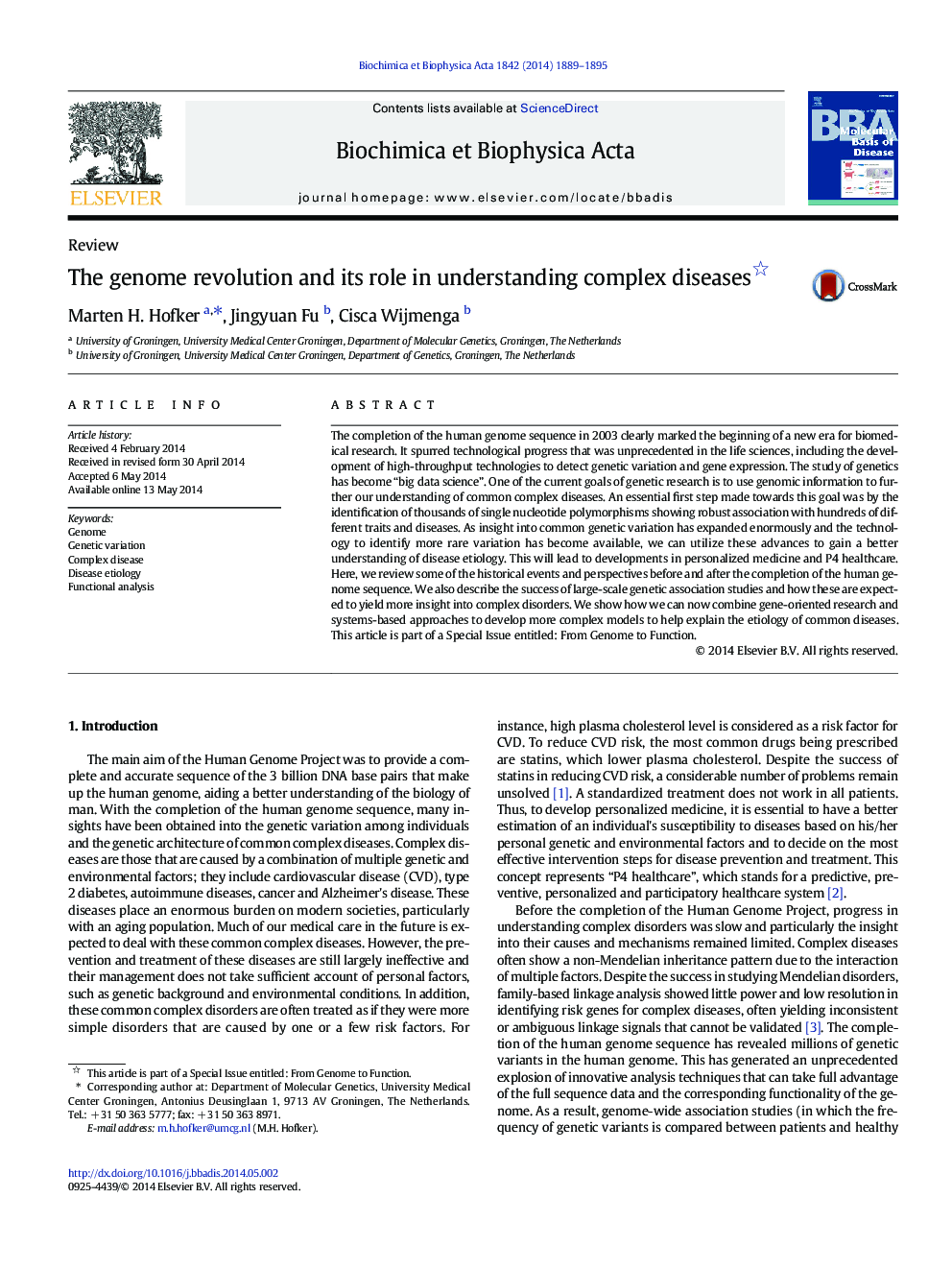| کد مقاله | کد نشریه | سال انتشار | مقاله انگلیسی | نسخه تمام متن |
|---|---|---|---|---|
| 1904691 | 1534655 | 2014 | 7 صفحه PDF | دانلود رایگان |
• Complex diseases are caused by multiple genetic and environmental factors.
• The completion of the human genome sequence revealed millions of genetic variants.
• This revolutionized the search for disease risk loci.
• P4 healthcare stands for a predictive, preventive, personalized and participatory system.
• We highlight the steps leading from disease association to P4 healthcare.
The completion of the human genome sequence in 2003 clearly marked the beginning of a new era for biomedical research. It spurred technological progress that was unprecedented in the life sciences, including the development of high-throughput technologies to detect genetic variation and gene expression. The study of genetics has become “big data science”. One of the current goals of genetic research is to use genomic information to further our understanding of common complex diseases. An essential first step made towards this goal was by the identification of thousands of single nucleotide polymorphisms showing robust association with hundreds of different traits and diseases. As insight into common genetic variation has expanded enormously and the technology to identify more rare variation has become available, we can utilize these advances to gain a better understanding of disease etiology. This will lead to developments in personalized medicine and P4 healthcare. Here, we review some of the historical events and perspectives before and after the completion of the human genome sequence. We also describe the success of large-scale genetic association studies and how these are expected to yield more insight into complex disorders. We show how we can now combine gene-oriented research and systems-based approaches to develop more complex models to help explain the etiology of common diseases. This article is part of a Special Issue entitled: From Genome to Function.
Journal: Biochimica et Biophysica Acta (BBA) - Molecular Basis of Disease - Volume 1842, Issue 10, October 2014, Pages 1889–1895
